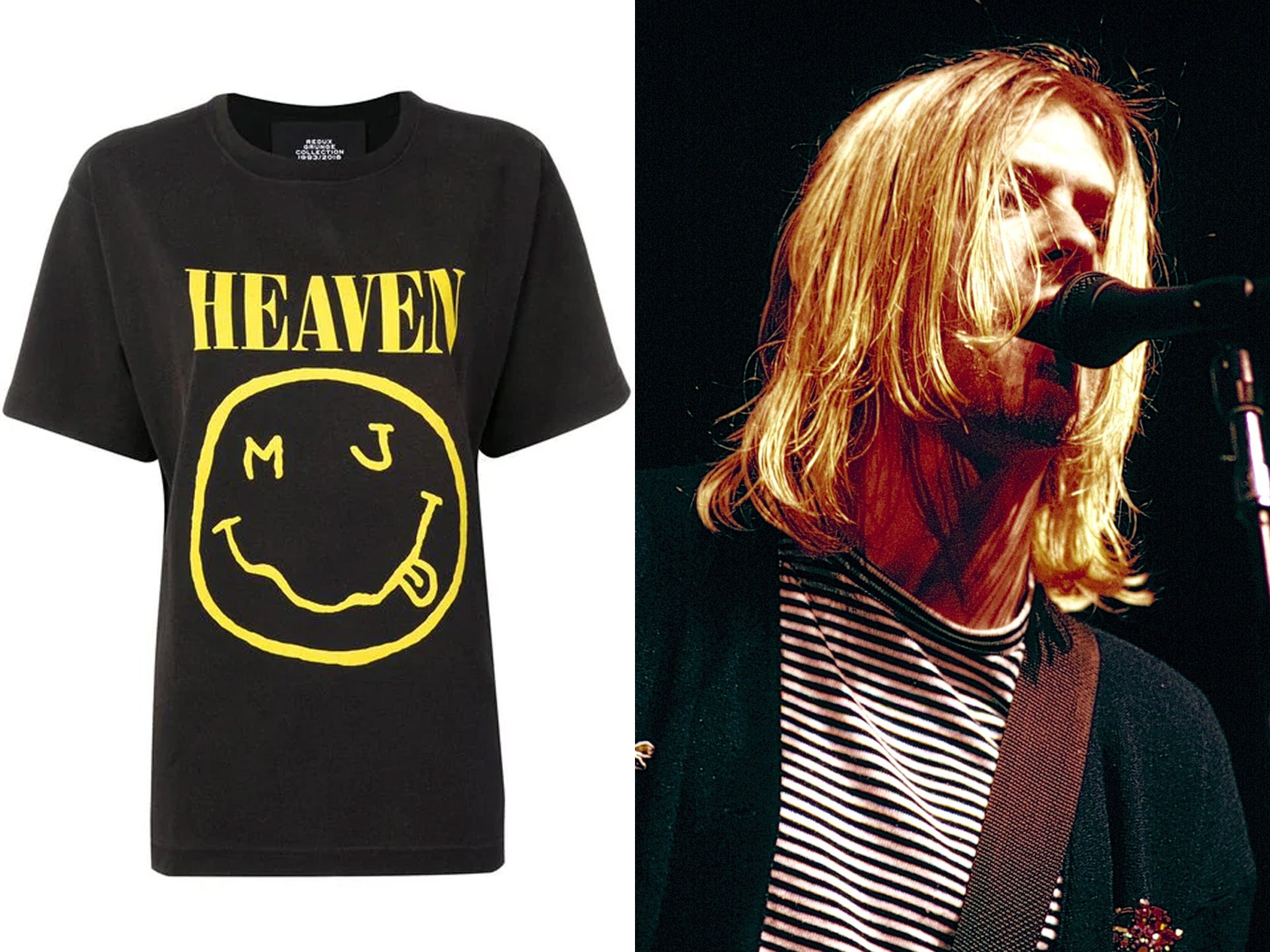Marc Jacobs denies stealing Nirvana ‘happy face’ logo on T-shirt amid lawsuit controversy
Nirvana filed lawsuit against fashion designer over T-shirt design in December

Marc Jacobs has denied using Nirvana’s iconic smiley face logo for designs in his 2018 Bootleg Redux Grunge collection.
In December 2018, it was reported the American fashion designer was being sued by the 1990s grunge band for using their signature happy face logo on his apparel.
The logo, which was designed by the late Kurt Cobain, first appeared on a flyer for the release party of Nirvana’s Nevermind album in 1991. It was trademarked a year later.
On Friday 8 March, lawyers for Marc Jacobs filed a motion for dismissal in a California federal court, according to music publication Pitchfork.
The dismissal argues the smiley face design which appears on a Marc Jacobs T-shirt, sweatshirt and a pair of socks did not copy elements of Nirvana’s happy face logo.
The document states Jacobs “drew inspiration from the looks that his friends were wearing in downtown Manhattan and in the Pacific Northwest” when he introduced his “grunge” collection in 1992, while working as creative director for American fashion brand Perry Ellis.
It outlines how the fashion designer “continued to be inspired by grunge style and incorporate grunge references” throughout his career, after launching his eponymous label.
In November 2018, Jacobs re-released 26 pieces from his 1992 grunge collection to mark its 25th anniversary, including the garments adorned with the aforementioned smiley face design.
“The design was inspired by vintage Nirvana concert T-shirts from the 1990s – the era of ‘grunge’ fashion,” the dismissal reads.
“Marc Jacobs re-interpreted the design of the face using his MJ initials as the face’s eyes in order to incorporate an MJI branding element into an otherwise commonplace image.”
The document also argues Nirvana does “not own a copyright registration for just the X-Eye Smiley Face” with which the band has become synonymous, despite referring to the logo as copyrighted in the original complaint.

The dismissal goes on to state that singer Courtney Love, Cobain’s former partner, and their daughter Frances Bean Cobain, helped “celebrate” the re-launch of the collection, both of whom expressed their admiration of the collection on social media.
Model Frances Bean Cobain fronted a campaign for Jacobs’ spring collection in 2017.
Join our commenting forum
Join thought-provoking conversations, follow other Independent readers and see their replies
Comments
Bookmark popover
Removed from bookmarks